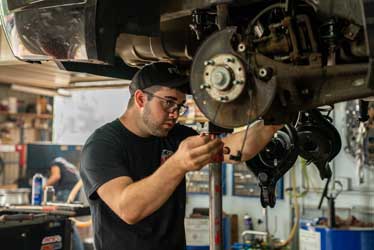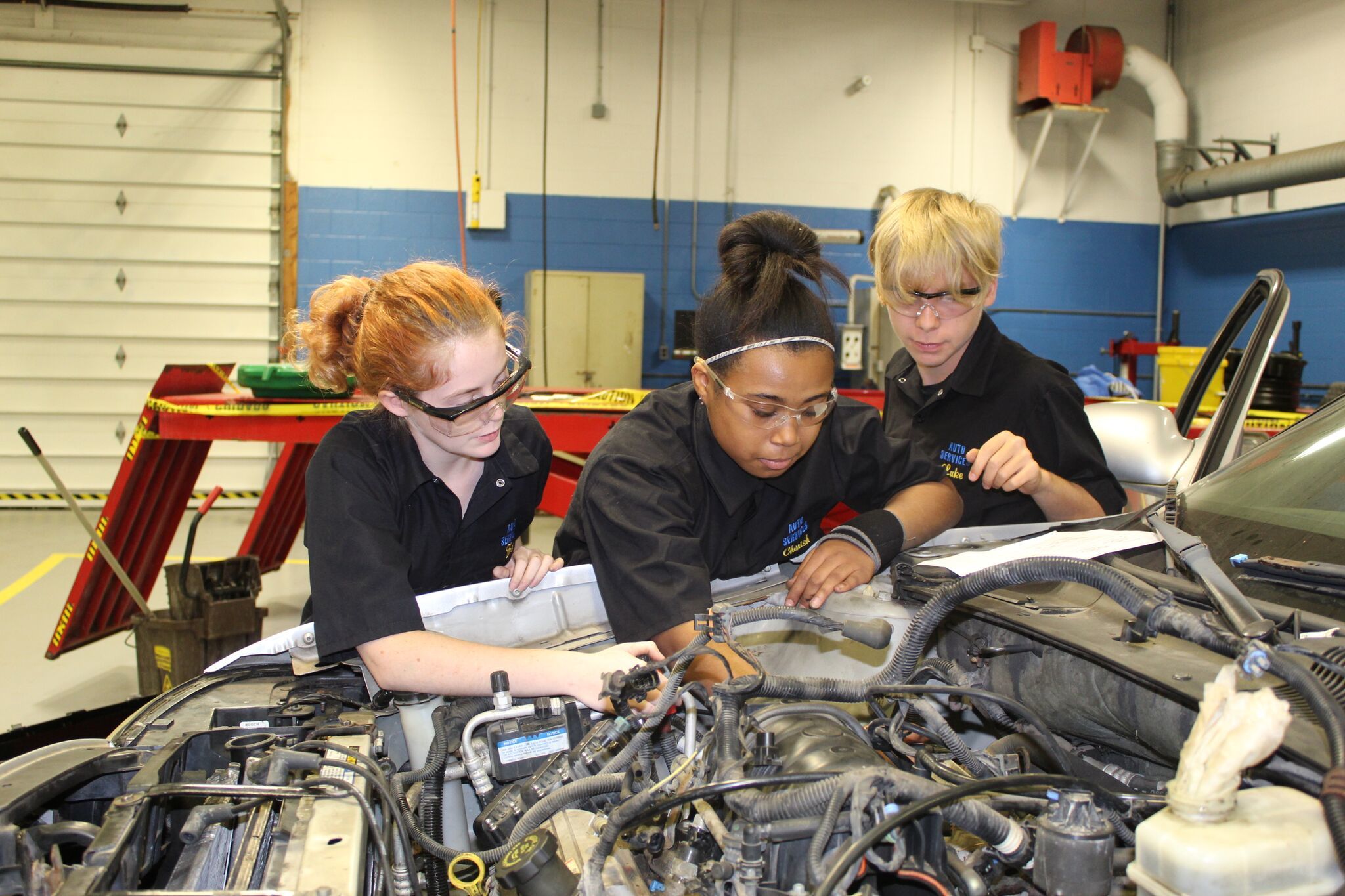All Categories
Featured

[/image]
Brakes are probably the most vital security feature of any kind of car. Without dependable brakes, also the most effective cars and truck can become a threat on the road.
- The Relevance of Routine Brake Inspections. Brakes undergo continual damage with every usage, whether you're driving at high speeds on the freeway or cruising via city streets. Gradually, brake pads, blades, and other parts use down, which can affect braking performance. Without regular inspections, you may not observe the progressive reduction in performance up until it's also late.
Regular brake evaluations allow you to catch issues early, making certain that your brakes stay responsive, reputable, and secure. Timely assessments can likewise save you money by dealing with small issues prior to they end up being expensive repair services.
- Typical Signs That Your Brakes Need Attention. While regular brake examinations are essential, there are some warning indications you can keep an eye out for to recognize when it's time to schedule a check-up:
Squealing or Grinding Sounds: Piercing squeaks or grinding noises when applying the brakes are commonly signs that your brake pads are used out and require replacement. Vibration or Pulsation: If you really feel resonances in the guiding wheel or the brake pedal, it could indicate warped rotors, which might need resurfacing or changing. Soft or Squishy Brake Pedal: If the brake pedal really feels unusually soft or squishy, there might be air in the brake lines or an issue with the master cylinder. Pulling to One Side: If your car pulls away while braking, this can be triggered by uneven brake pad wear or a problem with the brake liquid. Increased Stopping Range: If it takes longer to quit than usual, it might show that the brake pads are put on, the fluid is low, or the blades are harmed. If you observe any of these signs, it's ideal to have your brakes checked quickly.

- Secret Components Checked During Brake Inspections. During a brake examination, a specialist will inspect a number of essential components of the braking system to ensure everything is working effectively. Right here are the vital components included:
Brake Pads: One of the most usual factor for poor braking performance is damaged brake pads. Examining the thickness of the pads is a priority during every evaluation. Brake Rotors: Rotors need to be smooth and without grooves or cracks. Any kind of significant damage to the blades could cause compromised braking effectiveness and irregular pad wear. Brake Fluid: Low or polluted brake fluid can impair braking performance. The specialist will certainly check the fluid degrees and top quality and change it if needed. Brake Lines and Hoses: Brake lines ought to be totally free of leaks or fractures. Any type of damage to the lines can cause loss of brake liquid, bring about brake failing. Brake Calipers: The calipers use pressure to the brake pads. They should be evaluated for indications of wear or leakages to ensure they are functioning correctly. Regularly checking these components assists keep your brake system in peak problem, enabling you to stop your car securely and efficiently.
- Exactly how Commonly Should You Have Your Brakes Checked? The basic recommendation is to have your brakes examined a minimum of yearly or every 12,000 miles, depending on your driving behaviors. Nonetheless, specific driving problems might require more constant examinations:
Hefty Web Traffic: If you commonly drive in stop-and-go website traffic, your brake pads will wear down quicker. Hill Driving: Driving on steep roadways needs more regular stopping, which can trigger your brakes to wear quicker. Towing or Hauling Heavy Plenties: If you regularly lug hefty lots, your brakes will certainly experience more tension and call for even more regular inspections. If you discover any of the warning signs mentioned earlier, don't await the next scheduled inspection-- have your brakes checked promptly.
- The Consequences of Disregarding Brake Inspections. Disregarding routine brake examinations can lead to severe repercussions. A failing brake system might lead to minimized quiting power, which raises your threat of crashes. Neglecting brake upkeep can additionally lead to extra pricey repair work. For instance, if you postpone replacing worn brake pads, the damages can prolong to the blades, bring about the need for rotor replacement, which is an even more costly repair work.
In the worst instance, driving with harmed brakes can result in finish brake failing, placing you and various other drivers in jeopardy. Routine brake assessments are a little financial investment that can conserve your life and stop pricey fixings.
- Conclusion: Remain Safe with Regimen Brake Inspections. Brakes are not something you wish to take opportunities with. A trusted stopping system is necessary for safe driving, and routine brake inspections are a basic way to make certain that your car quits when you require it most. By staying on top of brake upkeep, watching for cautioning indicators, and having your brakes inspected at the suggested periods, you'll safeguard both your vehicle and your safety and security.
Don't wait till your brakes begin to fail-- routine routine brake inspections and maintain your vehicle in optimum condition for years to come.
Latest Posts
Explore WyHy FCU – Top Benefits for Your Financial Future
Boost Your Home's Outside with Weathercraft's Exterior siding Solutions
Don’t Miss Special Auto Repair Offers in Chicago at Montclare Auto Repair